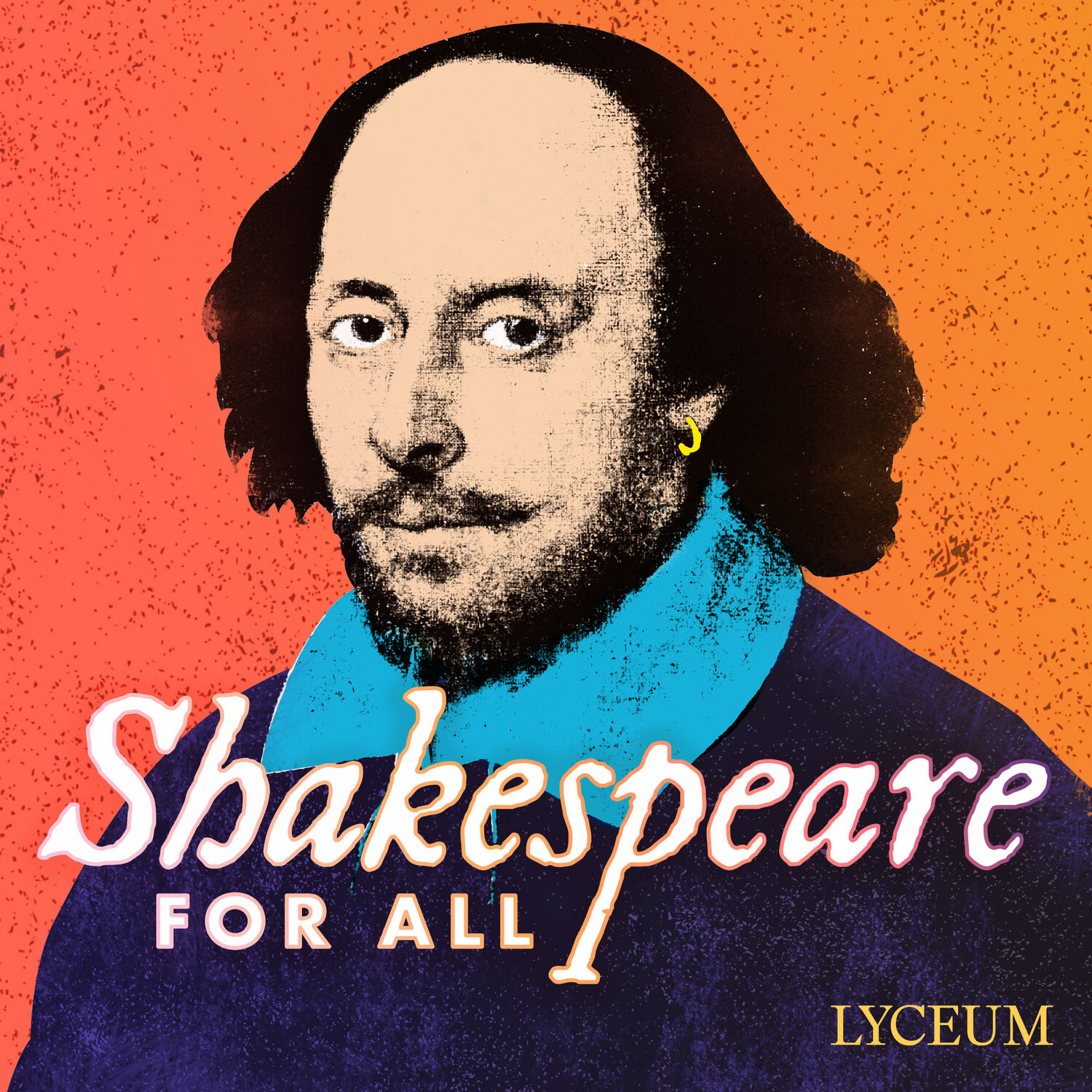Shakespeare’s Life, World and Works
What You'll Learn
The reasons why Shakespeare is still one of the world’s most relevant and exciting authors 400 years after his death
The story of Shakespeare’s life and the key historical, religious, and cultural developments that shaped his world and work
The strategies that will help you understand and enjoy Shakespeare’s language and stories from your very first reading
Course Outline
Episode 1: Why Read Shakespeare?
Episode 2: Shakespeare’s World
Episode 3: Shakespeare’s Life
Episode 4: Shakespeare’s Work
Episode 5: How to Read Shakespeare
Works Consulted for this Course
Bate, Jonathan. “Shakespeare’s Career in the Theater,” in Shakespeare, William. The Merchant of Venice. Edited by Jonathan Bate and Eric Rasmussen. The RSC Shakespeare. New York: Random House Publishing Group, 2010.
Greenblatt, Stephen, and M. H. Abrams, eds. The Norton Anthology of English Literature. 8th ed. New York: W.W. Norton, 2006: “Introduction,” in Volume B: “The Sixteenth Century/The Early Seventeenth Century,” edited by George M. Logan, Stephen Greenblatt, Barbara K. Lewalski, and Katharine Eisaman Maus.
Hattaway, Michael. A Companion to English Renaissance Literature and Culture. Oxford, UK ; Malden, Mass.: Blackwell, 2001.
Smith, Emma. The Cambridge Introduction to Shakespeare. New York: Cambridge University Press, 2007.
Smith, Emma. This Is Shakespeare. New York: Pantheon Books, 2020.
William Shakespeare, who lived in England from 1564 to 1616, is one of the world’s most popular and most captivating authors. Even four hundred years after his death, his plays still attract audiences around the globe. Why is that? In this course, you’ll learn who Shakespeare was, what kinds of plays he wrote, and what makes his body of work perhaps the greatest work of art ever created.
In Episode One, Emma Smith, Professor of Shakespeare Studies at the University of Oxford, tackles the question, Why read Shakespeare? You’ll learn what makes Shakespeare newly relevant for each new generation of audiences and discover what is unique about Shakespeare’s approach to writing--an approach that lets us not only watch but actually take part in his plays.
In Episodes Two and Three, Professor Smith offers a tour through Shakespeare’s moment in history and through Shakespeare’s life. You’ll learn about the key historical, religious, and cultural changes that shaped the era in which Shakespeare wrote, including the Renaissance, the Protestant Reformation, and the opening of the first ever public theaters in London. Next comes Shakespeare’s own life, with an explanation of why some people have questioned whether William Shakespeare really wrote the plays, and why the particular Renaissance education he received prepared him so well to be a playwright.
Episode Four introduces you to the plays--the kinds of stories that Shakespeare wrote, the way he developed as a dramatist over his two-decade career, and the path his works took over four centuries to find their way into your hands. The next part picks up just at this point: now that you have the plays, what do you do with them? In Episode Five, Professor Smith shares student-tested strategies for approaching Shakespeare’s plays as a first-time reader or audience member. You’ll learn how to engage with the structure, imagery, and poetic verse of Shakespeare’s language and with the particular way that Shakespeare constructs his characters and plots. You’ll also learn why performance is key to discovering the meanings of Shakespeare’s plays--and why there are always new meanings to be discovered.
You can hear the first episode of this course for free below. For the full course, subscribe today on Himalaya Learning. Use the promo code SHAKESPEARE for 14 days free.
Course instructor:
Emma Smith, Professor of Shakespeare Studies at the University of Oxford
Emma Smith is Professor of Shakespeare Studies at Hertford College at the University of Oxford. She is a scholar of Shakespeare and early modern drama, whose research interests span performance, book history, histories of reading, reception and criticism of Shakespeare, and pedagogy. Professor Smith has written and edited numerous works for a range of audiences, including monographs on Shakespeare’s First Folio (Shakespeare’s First Folio: Four Centuries of an Iconic Book; The Making of the First Folio), companions and introductions to Shakespeare’s work (The Cambridge Guide to Shakespeare; The Cambridge Introduction to Shakespeare) and books written for a general readership (This Is Shakespeare; Thirty Great Myths About Shakespeare [with Laurie Maguire]). Professor Smith aims to share scholarly research with the widest possible audience, through books, articles, and lectures, and also through consultation on films and theatre productions, radio and media appearances, and podcasts, including her acclaimed lecture series Approaching Shakespeare.



